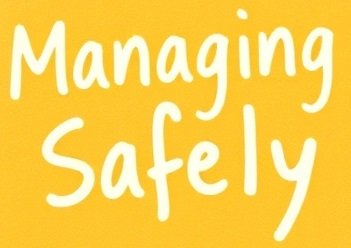The Awareness to Lone Working course is an essential training program designed to educate employees and employers about the unique risks and safety considerations of working alone. Lone working refers to situations where an employee works by themselves without close or direct supervision, and it can occur in various industries, including healthcare, retail, delivery services, and fieldwork.
What is Awareness to Lone Working?
Lone working is a common practice, but it comes with a range of potential risks that need to be managed. Employees who work alone are more vulnerable to accidents or emergencies because they may not have immediate assistance. These situations may occur in various contexts, such as working late at a facility, conducting site visits, or working in remote locations. It is crucial for organizations to understand the responsibilities of both employers and employees to ensure safety in these circumstances.
Why is Lone Working Awareness Important?
Lone working can involve physical and psychological risks. While physical dangers such as slips, trips, falls, or health emergencies are some of the immediate concerns, there are also significant risks related to violence, aggression, or accidents where the lone worker may not be able to get help in time. This makes it crucial for both employers and employees to be aware of these risks and take proactive steps to prevent accidents and provide appropriate support.
By completing the Awareness of Lone Working course, employees gain a deeper understanding of the risks and the measures necessary to mitigate them. This includes understanding the relevant laws and regulations that govern lone working practices, as well as the specific responsibilities of the employer and employee to ensure safe working conditions.
Course Coverage: What Will You Learn?
The Awareness of Lone Working course covers the following key areas:
- Understanding Lone Working Risks
- The course provides an overview of the different types of risks associated with lone working. This includes physical risks such as accidents and injuries, as well as risks like mental health challenges, stress, and isolation that can arise from working alone.
- Health and Safety Regulations
- It explains the laws and regulations regarding lone working. Participants will learn about the Health and Safety at Work Act, which requires employers to assess and manage the risks associated with lone working. The course outlines the specific obligations employers have in ensuring the safety of employees working alone.
- Risk Assessment for Lone Working
- A major component of the course is teaching employees how to conduct a proper risk assessment. This process involves identifying potential hazards, evaluating their impact, and putting in place control measures to reduce or eliminate these risks. For instance, identifying high-risk situations and implementing control measures such as communication tools, safety checks, and emergency protocols is covered.
- Preventive Measures and Safety Protocols
- The course emphasizes preventive strategies to avoid accidents and injuries. These may include regular check-ins, using mobile safety apps, providing personal alarms, and ensuring access to first aid kits. Additionally, the course discusses the importance of clear communication between lone workers and their supervisors, establishing protocols for reporting incidents or concerns.
- Managing Stress and Mental Health
- Lone workers may experience stress or mental health challenges due to isolation. The course highlights the importance of mental health awareness and the support systems that should be in place for workers who are alone for extended periods. Techniques for managing stress and knowing when to seek support are essential learning points.
- Emergency Procedures
- The course also covers emergency procedures that must be followed when something goes wrong during lone working. From accidents to health emergencies, employees will learn the proper response protocols, including how to alert others and receive help quickly.
Benefits of the Awareness of Lone Working Course
- Enhanced Safety: Employees will be equipped with the knowledge and tools to stay safe while working alone, reducing the likelihood of accidents or incidents.
- Legal Compliance: Completing the course ensures that businesses comply with safety regulations, helping to avoid legal issues or fines related to inadequate risk management.
- Mental Health Support: The course helps address the psychological risks of lone working, such as stress or isolation, by providing strategies for mental health and well-being.
- Increased Productivity: By ensuring employees feel safe and supported, businesses can reduce absenteeism due to accidents or mental health issues, leading to higher productivity.
- Empowered Employees: Lone workers will feel more confident and equipped to handle various situations safely, knowing the procedures for assessing risks, responding to emergencies, and seeking help if needed.
Who Should Take the Course?
The Awareness of Lone Working course is ideal for:
- Employees who regularly work alone, including in sectors like healthcare, delivery, retail, and fieldwork.
- Employers who want to ensure that they comply with legal requirements regarding lone worker safety.
- Health and safety managers, supervisors, and managers who are responsible for implementing safety measures for lone workers.
Enroll in the Awareness of Lone Working course today and help ensure that working alone doesn’t mean working unsafely.
Note: We offer the certain courses in partnership with leading training providers to offer the best learning experience and competitive pricing. For more information regarding course availability, enrollment, and pricing, please contact us or visit our Linkedin page. Our team is available to assist with any questions you may have regarding the course content or the registration process.
Explore our wide range of courses. Visit Managing Safely, ProQual NVQs, Level 3, 6, 7, ISO Lead Auditor and other short courses. To learn more contact us or visit our Linkedin or Facebook page.











